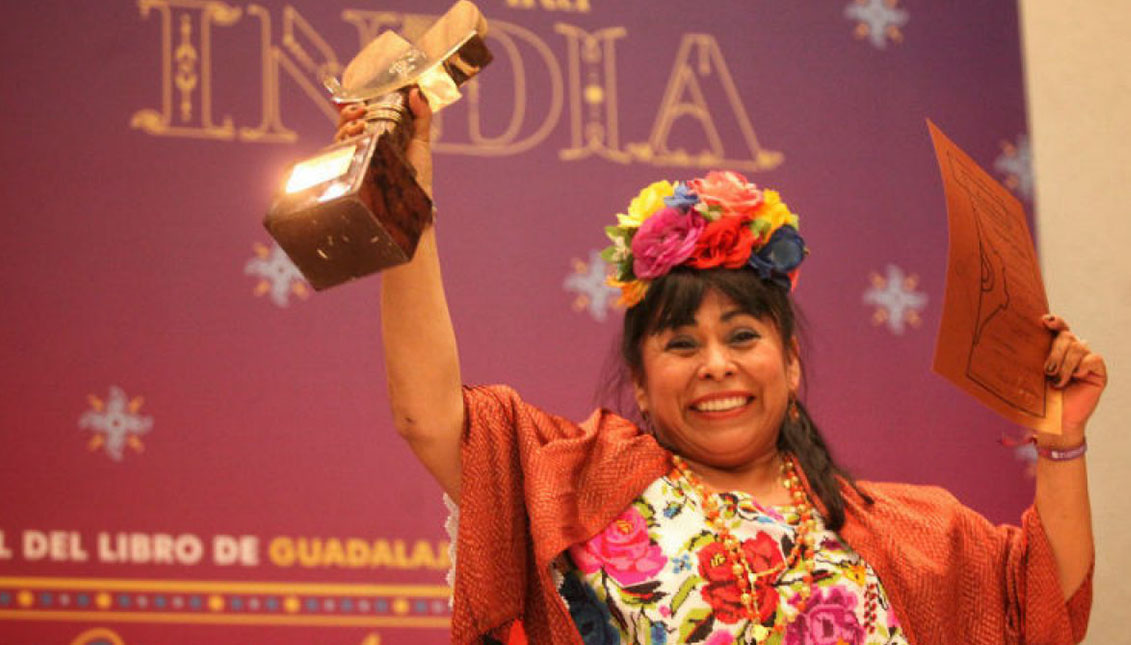
The three lives of Mayan writer Sol Ceh Moo
She was the first woman to win the Indigenous Languages Prize for the short story book "Lost Steps" ("Sa'atal Maan"), published in Yucatec Mayan and Spanish.
She took a false name until she was 17: Sol Castro - "My father said we should stop being Indians"-, but found in literature the engine and sense of her rebellion, and that's why today she proudly proclaims herself a Yucatecan Mayan writing in her own language, that of the small town of Calotmul, Mexico, where she was born which only seven women and six men speak.
Most of its people migrate to Quintero Roo, to the beaches and resorts and the ruins of Tulum, and when they come back, she says, they often forget their roots.
In 2009, Sol Ceh Moo, wrote 'X-Teya, u puksi'ik'al ko'olel' ('Teya, a woman's heart'), which was a pioneer in everything: the first novel in the Mayan language and the first also written by a woman in an Amerindian language of Mexico.
The prestigious Guadalajara International Book Fair (FIL) has just awarded her the Indigenous Languages Prize for her anthology of stories 'Lost Steps' ('Sa'atal Maan'), in which she tackles the political and social problems of Mayan communities.
"Being a woman is a sin and being born in an indigenous community means being depicted and condemned to be poor, predestined to be a mother, to take care of your children and your husband, there are the difficulties," she told LA Times.
"With literature, we come out of that sphere, we can assimilate more easily, to excel, we are evolving."
Like every strong woman who excels in her field, she has been criticized by purists who claim that her stories depart from the Mayan tradition.
RELATED CONTENT
"Taking different or strong themes is a way of demonstrating that the complete language is a tool like any other," she once said. "I use my work to make a cry for help, to demand."
As well as those who, like the novelist Arturo Arias, wonder why the protagonists of her works are usually male. Strong, sullen characters, who sometimes use rude and violent language, a reflection of the violence and oppression to which the women of Mayan communities are exposed, where even their own husbands forbid them to exercise their right to vote.
"On one occasion I held a Regional Meeting of Indigenous Women and one of them expressed that she had so many desires to create something, to be an artist like us, but her husband said to her, 'How do you think you can do something like this, you already have children, you are already married, you are a woman and you have to think about other things. What you do at home is enough.' You think about it and wonder how it is possible for your own family to become your enemy," she concluded.
Born as Marisol Ceh Moo, hidden for a time as Soledad Castro and reborn as Sol Ceh Moo, the author, who aspires to one day to win the Nobel Prize in Literature, was awarded in 2014 the Nezahualtcóyolt Prize for Literature in Mexican Languages for her novel "Only for being a woman" ("Chen tumeen x ch'úupen"), which tells the story of a woman in prison who, when pardoned by the government, thus responds to the media who challenge her:
"I don't want half forgiveness, I want to be erased as a murderer or I don't want freedom, complete forgiveness or nothing."











LEAVE A COMMENT:
Join the discussion! Leave a comment.